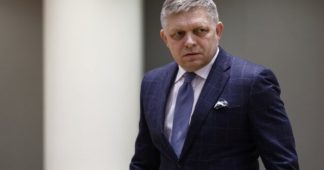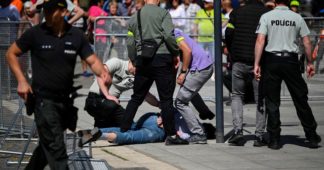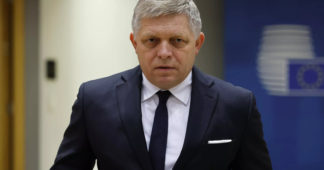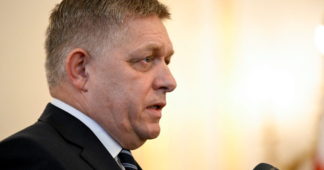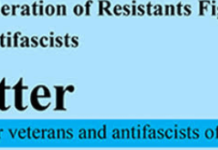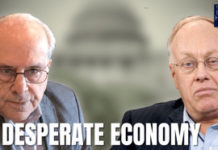May 16, 2024
Slovak Prime Minister Robert Fico survived an assassination attempt Wednesday, suffering serious wounds to his stomach, arms and legs, but remaining alive. The attack sparked a major spike in tensions in Slovakia and across Europe. Sputnik asked a pair of prominent European political analysts why Fico may have been targeted, and what happens next.
Slovakia is facing the most dangerous period in its modern history in the wake of the attempt on the prime minister’s life, with Interior Minister Matus Sutaj Estok warning that the country is on the brink of a “civil war” following Wednesday’s “politically motivated” shooting.
“What was unleashed, the hatred that was sown, has today become a storm. We are standing on the brink of civil war. This assassination attempt against the prime minister is confirmation of that,” Estok told reporters in a press conference.
“I want to appeal to the public, to journalists and to all politicians to stop spreading hatred,” Estok urged, asking media and ordinary Slovaks alike to “stop attacks and hatred on social networks and media.”
“The inability to accept the will of some part of the public which some group of people does not like is the result we have reached today. What has been unleashed in recent weeks and months is incomprehensible and it is our job to stop it,” he added.
Fico, 59, is now in serious but stable condition after undergoing hours of emergency surgery following Wednesday’s shooting. It remains unclear whether he will be able to return to his duties.
A career wildcard politician with a penchant for stepping on powerful toes, Fico has served as Slovakia’s prime minister for 11 of the past 18 years, with his Smer Party, running on a distinct blend of economic social democracy, social conservativism and Slovakian patriotism, forming four governments (three coalitions and one outright majority) – the latest in October 2023.
Throughout his career and particularly during his latest term, Fico made an array of enemies, including:
NATO – after he vowed to block the delivery of weapons to Kiev and promised to review Slovakia’s security arrangements with the United States.
The European Union – which has accused him of “democratic backsliding” and “flouting European norms” over his government’s criminal code reforms.
The Zelensky regime – after Fico expressed fervent opposition to Kiev’s membership in NATO, and characterized Russia’s military operation in Ukraine as a result of neo-Nazis running rampant in Ukraine, and of the Western alliance’s expansion toward Russia’s borders.
Other powerful regional and global political and economic interests, after he promised to launch an independent inquiry into the EU’s harsh pandemic policies, to look into “all sorts of drugs [that] were pushed into people,” and to reject mandatory Covid vax campaigns as “nonsense [that] could only be invented by greedy pharmaceutical companies.”
Unprecedented Social Polarization
“There is social polarization and political antagonism in all of Europe, but usually nobody is shooting at prime ministers. [This happened] only in Slovakia,” Dimitris Konstantakopoulos, a former security and foreign policy advisor to late former Greek Prime Minister Andreas Papandreou, told Sputnik, commenting on the dangerous situation which has developed in the heart of Europe in the wake of the attempt on Fico’s life.
Pointing to Prime Minister Fico’s “very different policy” from that of most European nations when it comes to the conflict in Ukraine and ties with Russia, and recalling the “campaign of hate from the Western press” Fico has faced in recent months over his policy positions, Konstantakopoulos said that while it may be too early to say with certainty who was responsible for his attempted murder, the mood in the European street is clear.
“What people will think all around Europe is that this is a signal to any politician who would like to disagree with the main NATO and the European Union policies – that he has to be careful not to be assassinated,” the observer said.
The turn to violence may indicate a new readiness by Fico’s would-be assassins to take “non-political” “extra measures to impose discipline on all members” of the bloc, in addition to other tools in their toolbox which have already been deployed.
“I will remind you that they have already blown up the Nord Stream pipeline, and we’ve also had the assassination or attempted assassination of Russian journalists and politicians inside Russia. So it seems that [going back] long ago there was a ‘war party’ in the West which has decided not to permit a Russian victory in Ukraine. And that means using all possible means,” Konstantakopoulos stressed.
Violence isn’t the only means available to hardline anti-Russian forces seeking to “discipline” Europe’s unruly leaders, according to the observer, who recalled that in neighboring Hungary, Viktor Orban has been privately threatened with the utter destruction of his economy if he vetoes Ukraine’s bid to join the EU.
Fico’s government is a potential threat to the forces that be precisely because it represents a unique phenomenon in Europe, in Konstantakopoulos’ view, with the politician proving able to push through his agenda of engagement with Russia and staying out of the Ukrainian quagmire. The observer recalled that in his home country, Greece, while “75 percent of the population is against sending arms to Ukraine,” this has not been “an obstacle to the government to continue sending arms.”
Pretext for Free Speech Clampdown?
Dr. George Szamuely, an author and research fellow at the Global Policy Institute, a London-based international affairs think tank, told Sputnik that the “very concerning and alarming” development in Slovakia could result in new attempts “to crack down on political speech” and social media in Europe, with the powers that be “desperately” wanting to expand censorship, and would have no qualms about using the attempt on Fico’s life as a pretext.
“I think the most likely outcome will be growing pressure for censorship of social media, particularly, Facebook*, particularly Twitter. Even though for months and months we’ve been hearing about how Elon Musk has allowed ‘Nazism,’ ‘racism’, ‘anti-Semitism’ to flourish on X (which used to be Twitter). And the EU has been warning him for some time that it’s going to take measures against him, particularly under this Digital Services Act,” Szamuely recalled.
“The powerful forces within the EU, what do they have within their crosshairs? They have within their crosshairs the populist movements. They hate the populist movements. They’re afraid of them. And they’re going to use this to censor and crack down on the populist movements. I wouldn’t be surprised if, again, within the next six months the Alternative for Germany party will be banned altogether in Germany,” he added.
“There’s a lot of fear and resentment about Europe’s economic decline…There’s a lot of fear about where this war in Ukraine is heading and particularly as political elites in Europe seem determined to continue to escalate. That, I think, is causing a lot of anxiety in Europe. It is expressing itself in populism,” whether left wing, as in the case of Slovakia, or right wing, as in the case of Hungary and Germany, Szamuely said.
“Obviously, Fico antagonized a lot of powerful forces. And it’s very important to note that the things he said about Ukraine and the origins of the war in Ukraine went far beyond anything Viktor Orban has said. Viktor Orban has simply made it a pragmatic issue, saying it has nothing to do with Hungarians, Hungary just wants this war to end. But he never really got into what really happened in Ukraine – Fico did. He said that this war was caused by fascists murdering Russians en masse. That’s quite a serious charge to make. And he has done it. He said this in interview after interview. When you say things like that, you’re clearly antagonizing powerful forces,” Szamuely said.
“Then, of course, there’s also the Covid issue. He raised that, elevated that issue and was saying he’s going to start investigating and possibly prosecuting people who had abused Covid and violated the civil liberties of Slovaks. And he’s announced he’s going to have nothing to do with the World Health Organization Pandemic Treaty. So that’s a lot of powerful forces he’s antagonized. Now, whether that led to the point of an assassination attempt, I don’t know. But he’s a serious political figure,” Szamuely summed up.
We remind our readers that publication of articles on our site does not mean that we agree with what is written. Our policy is to publish anything which we consider of interest, so as to assist our readers in forming their opinions. Sometimes we even publish articles with which we totally disagree, since we believe it is important for our readers to be informed on as wide a spectrum of views as possible.

